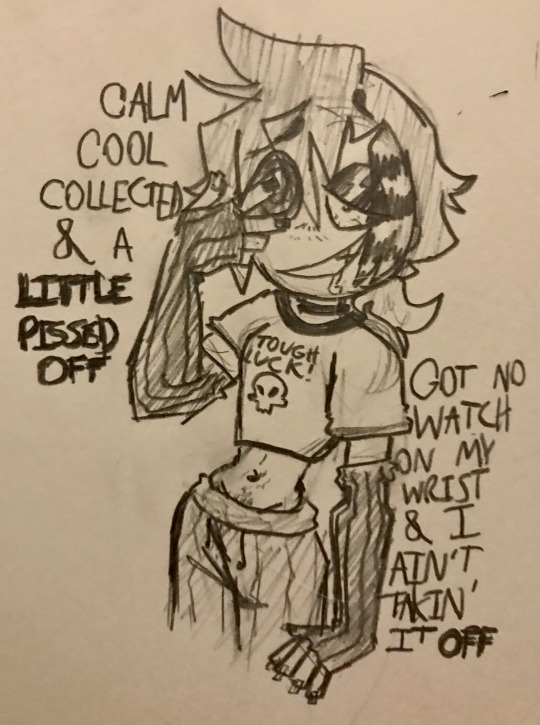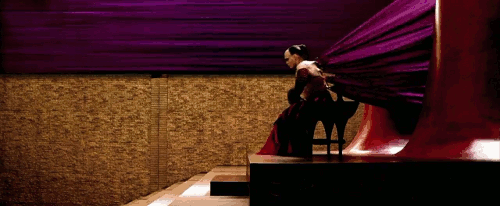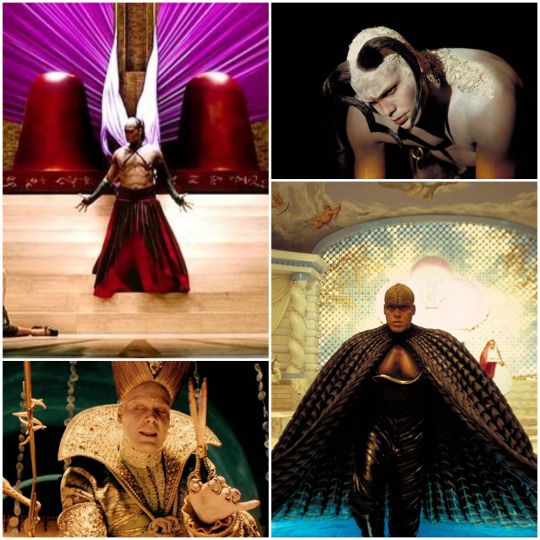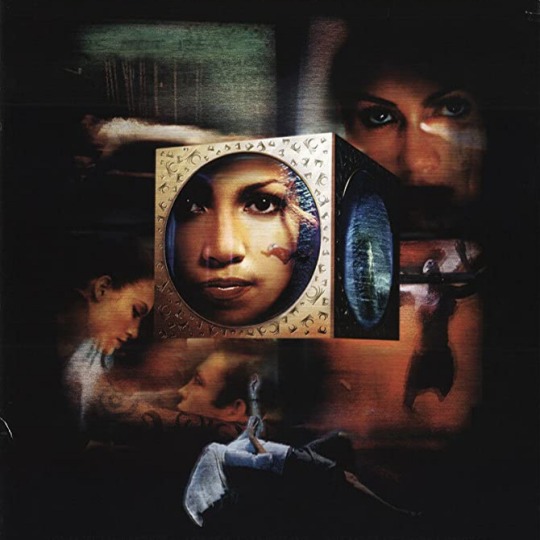#for reference i know that's not a correct usage of the word psychopath
Explore tagged Tumblr posts
Text

Tough luck, I'm a psychopath
I've been stompin' on the beat since my high school raps
#for reference i know that's not a correct usage of the word psychopath#it's just the lyrics#i fucking love this song so much#the lyrics are so fun and the beat is so funky#grabbitz my beloved<<333#vent art#triskelion soda art#grabbitz#lyric art#lyric inspired#i'm a bad person#bad mood#bad behaviour#self destructive behaviour#self aware#toxic person#toxic behaviour#self awareness#scene#scene fashion#edgy#being edgy#acting out#edgy kid#woozy#dizzy#bad person
1 note
·
View note
Text
Portraits of a Serial Killer - “The Cell” turns 20

I've often reflected how the influence of Art is a key component missing from Modern Horror. The Xenomorph we all know and fear came from the painted nightmares of Swedish surrealist H.R. Giger, the Screamer is said to have influenced the Ghostface Killer mask. For a further rundown of art's musings over the genre, I would highly recommend 2017's Tableaux Vivants for a look at 60 such portraits and the films they inspired.
youtube
In the summer of 2020, The Medium video game appears to correct that oversight with the recent trailer dropping, adapting Polish painter, Zdzislaw Beksinski's frightening paintings. In the same season of the same year is when The Cell celebrates 20 years (8/17/2020). This film appeared to feature as many artistic influences as possible into its near two hour runtime.
youtube
The sight of chains freaked me out upon watching my first Hellraiser movie, so the sexual perversion of their use in this film did little to alleviate such apprehension, especially as they pulled so tightly to suspend human flesh in the air. Despite a previous scene showing the villain having drowned his victim, this was the true introduction to his villainy - the former showed what he did, that latter why he did it. Even re-watching this film so many years later, I had to look away from the screen, recoiling from such a grisly display.
Typically, in Horror or any film that assumes a particular aesthetic, it is color that makes the impression to set mood. Instead, the use of white in this film, from the K9 to the bleached state of the victims is used to ghoulishly haunting effect.
I remember critics remarking that because of Vince Vaughn's comedic history they couldn't take him seriously in this role and relegated his involvement to stunt casting. I take the opposite stance since, for me, every role after this film simply serves as a reminder that he starred in The Cell. I've always felt that comedy actors do well in dramas - see Robin Williams in "Good Will Hunting" - and I thought that Vaughn did a serviceable job in this film, never distracting from either tone or plot.
I was happy that they just dove into the mechanics behind entering one's mind as an accepted reality, that they didn't get bogged down in techno babble or exposition of the technology. There is a time and place for the virtual journey into the cerebral frontier, such as The Matrix or a good adaptation of the Lawnmower Man, but for the Cell, I'm happy that they focused more on the story and not so much the science. The suits do look like Twizzlers, but it was made by Eioka Ishioka (who passed away in 2012), the same costume designer as Vlad Tepes' suit from Bram Stoker's Dracula. I do like that the two participators are suspended in the air while their minds are linked. It's an eerie callback to the killer's suspension from chains for sexual release. Also, it does give the technology that space age feel as though they are in a weightless environment.

Since the 90's, special effects have been criticized as dominating films to the point Stephen King is quoted as remarking that "story supports effects instead of effects supporting story". Similarly, an argument can be made that at times The Cell becomes too indulgent with its usage of famous art that serve no plot function, e.g. the Horse Split, the Three Women of Odd Nerdrum's Dawn painting, Mother Theresa and her Hallmark card, etc. As the director is quoted as saying "The thing about this film is it’s an opera, and there is no such thing as a subtle opera.” I don't believe that the script was penned as an excuse to pack in as much gallery portraits as possible or is an hour and fifty minutes of a music video. I just wish the director would've used each art piece he seeks influence from to develop the story or the character. The imagery doesn't always portray the killer's psychology or the psychologist's therapeutic technique. If he wasn't going to utilize subtlety, he should have implored restraint. He later added "Anyway, I missed the whole plot, just been talking visual all along, ah, where are we?”
Once in the killer's mind, his depiction as the master of his domain is a hauntingly accurate depiction considering the previous scenes of suspension rings in the back of his body, which unwittingly foreshadowed to the audience his royal appearance to come. Even the name, King Stargher, is a daunting title for a movie monster. When rising and descending from his throne, the violet robes receding from the walls and tracing along the room is hypnotically unnerving.
As tiresome as the "we're still in the dreamworld" trope can become (The Matrix, DS9 Season 7 episode 23 "Extreme Measures"), this film not only flips it when the psychologist realizes that she's "already in", but does so in a cleverly visual way.

King Stargher
Horned Stargher
Court Jester/Vatican Clown
Serpent Stargher
It is interesting to think that a single actor would assume many distinct monstrous characters. Unlike a Freddy Kreuger or a Pennywise that turn into manifestations of their victims' fears, the figures that Stargher assumes are all avatars of his own warped psyche, his own inner turmoil. Vincent D'Onofrio really does put in his all with this role. He's soft spoken and understated when he needs to be and malicious and heartless when the scene demands it. Along with the visuals of the film, D'Onofrio's performance is worth the price of admission. It's a shame that his acting as well as the movie's stunning artistry are what have gone overlooked all these years. Speaking of...
One invalid criticism that has been levied against the film is its attempts to persuade the audience to sympathize with the killer. My intention with the following statement is neither to flaunt my Horror insight nor to divide the lines between fans within Horror and those without. Having said that, even as an adolescent seeing this movie in theaters, I at no point felt remorse for the serial murderer and I chalk up this long-held misconception to a bad read on the film.
So off-base is this "critical analysis" that it can't even be regarded as a Jekyll & Hyde dynamic. The villain is not split down the middle between binary good and evil, where both halves are at war over his soul, or the repressed impulses of his Dark Passenger are manifesting in a heartless butcher. If there is any distinction, it is between who the antagonist was when a victim as a boy and what the man became as an adult victimizer. If anything it is the good that is repressed, not the evil. Furthermore, along with using the film's plot to force Alice down the rabbit hole of the Mad Hatter's mind, this film does address the nature of evil. When referring to Stargher, even Jennifer Lopez's character remarks "The Dominant side is still this horrible thing". The Vince Vaughn detective states "I believe a child can experience 100 times worse the abuse than what Gish (a different killer) went through, and still grow up to be somebody that would never, ever, ever hurt another living being." Thus, these serve as acknowledgement that the abducted criminal is firmly in the driver's seat to the point of its reference as a "thing" and a condemnation of what the killer has become, respectively.
Along with exploring the psychology of the killer, the film does not qualify the villain's innocence, it questions it.
The critics probably missed that pesky detail that would've debunked their headline before they pressed a single word of their denunciation.
These same professional critics wouldn't give a second's hesitation towards throwing Horror under the bus and condemning Scary Movies for inspiring violence if it meant their jobs were only the line, yet they would balk at the notion that continued mental trauma and physical abuse can cause psychopathic behavior.

There are classics and icons worth praising for their plot and performances, respectively, and then there are some Scary Films that Horror Fans view with the understanding of their heavy material and without your typical fanfare because they're a hard watch. I can see where people would be fans of Hannibal Lecter not because they or the film glamorizes cannibalism, but because of Anthony Hopkins' acting chops (excuse the pun). Conversely, John Doe, the serial killer of Se7en, has and will likely never enjoy such admiration because of the cold purity of his calculated evil. The 2 decade critique of The Cell's villain portrayal is a dark cloud that has unjustly hung over its head.
The motif of "the eyes of a killer" was something applauded in Rob Zombie's Halloween 2, yet ridiculed in The Cell 9 years prior?
This film's premise and the fact that it wasn't fully effectively executed makes it primed for a remake. Hollywood needs to be issued a Cease and Desist order of such wholesale dependence on Remakes in general, let alone in the Horror genre. When you consider that so many remakes can't outdo the original and even tarnish the films they attempt to emulate, why not fix the problems of a film that went wrong and take the credit when you get it right?

1 note
·
View note